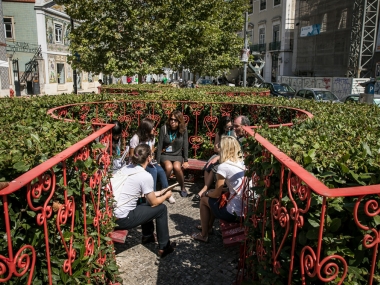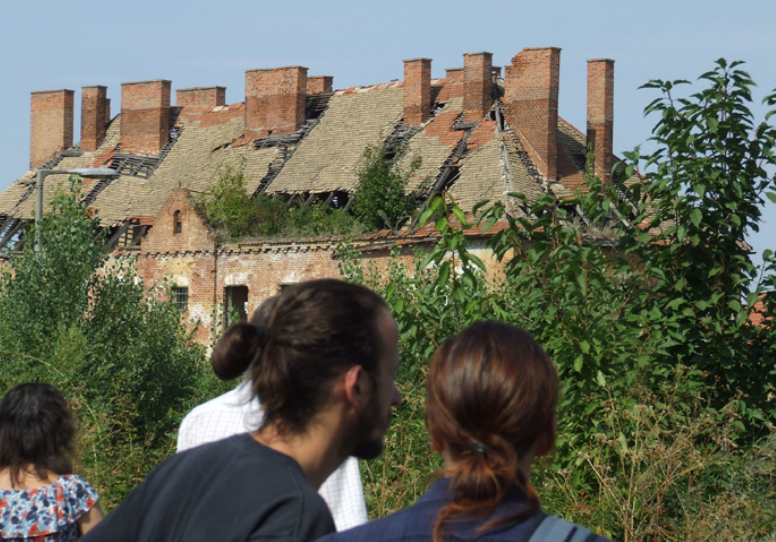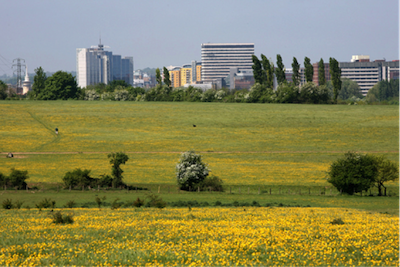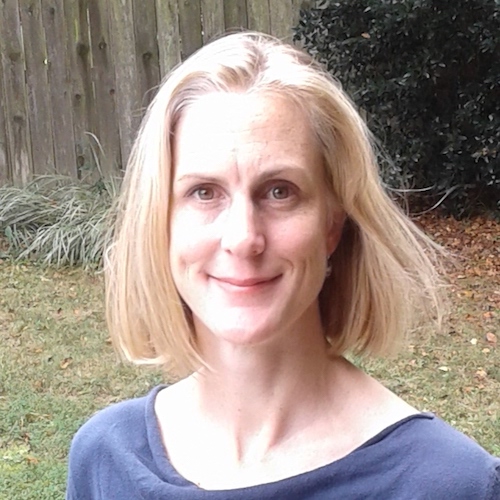Looking for your ideal partner? How these cities found theirs
Edited on
21 February 2019Love is in the air as hundreds of towns and cities across the EU set out on their quest for the perfect city partnership. Cities have until mid April to find an international group of soul-mates facing similar urban challenges, and apply to become an URBACT ‘Action Planning Network’.

Up to 23 European networks will be selected to embark on a two-and-a-half-year URBACT adventure, sharing their challenges, solutions and new ideas – while working locally to build new partnerships and tackle their own urban problems. So far, city hopefuls have published more than thirty project ideas on URBACT's Partner Search Tool, with topics ranging from town-centre development to sports participation, urban health to climate-change adaptation, community involvement to productive employment.
More than 500 EU cities have already taken part in URBACT networks, benefiting from URBACT funding, expertise in sustainable urban development and participatory policy-making – and more.
The aim is to encourage more first-time cities to join this call. But whatever your location, size, or level of experience, it’s not always easy to find your perfect match. So we asked three lucky-in-love cities how they found theirs.
'Love is in the air'
When Szombathely (HU) chanced upon Varaždin (HR), the city was looking for ways to redevelop its huge derelict military site. They also wanted to learn from EU programmes and build connections with other cities. Szombathely went on to join the MAPS Action Planning Network (2015-18) – nine partner cities all building sustainable urban strategies to “redefine the function, social role and accessibility of former military heritage”. Ágnes Győrffy, Project Manager for the Mayor’s Office, remembers how it all started…
“Our city is very close to the Slovenian border, and we were invited to the Slovenian URBACT national info day. The day itself was mostly in English, and a small part in Slovenian, but there was translation, so my boss told me ‘Why not go there and have a look what URBACT is’. And so I went. There was a section when cities had the chance to present their new ideas in two minutes. And there was a young lady from Croatia – Emanuela Grđan, Counselor for Planning at City of Varaždin – saying that they too had a military asset and that they don’t know what to do with it. The problem she told us about was very, very similar to ours. So I came home saying ‘This programme sounds good! We can’t build anything, but we can think together, we can gain experience and knowledge from each other… and there is an interesting idea to have a new project with military assets’...”
Ágnes’ tip for other cities looking for their perfect partner? “Never underestimate any occasion for a new relationship!”
'Love at first sight'
Looking for job creation solutions, cherry-producing Fundão (PT) used URBACT’s online partner search tool to hook up with Baena (ES), via the local development association ADEGUA, and its new network AGRI-URBAN.
Micaela Gil, Fundão municipality’s European Project Manager recalls: “I took a moment to read all the proposals online, selected the most interesting project ideas, and presented them to the mayor. Then I sent an email to three or four partners. Baena was one – Antonio (Zafra) replied, and sent me a questionnaire. I also phoned him so we could get to know each other and better understand what Fundão could bring to the network.
I immediately felt that Antonio would be an excellent partner, just from talking on the phone. And the project seemed really interesting. The questionnaire was reassuring. Even their project idea proposal was more concrete than some of the others that didn’t give much information.
We’d briefly tried joining an URBACT project in 2008. But it didn’t get past the first phase. It was our first bad experience. But this time with AGRI-URBAN (2015-18), it went very well. Together, the cities rethought agri-food production, benefiting jobs, revenues, health and the environment.
At first I was apprehensive: ‘Am I going to get there? Will I meet the expectations of the programme and the partnership?’ But once we met our lead expert, who’s also Portuguese, and the other partners, everything became clearer: we gained confidence, we felt motivated.
AGRI-URBAN went so well that we want to continue, so we’ve posted a project idea on the partner search tool in this call. We already have several contacts. And just like Baena, I sent a questionnaire to interested cities so I can select the most interesting partners for our project.
One excellent initiative URBACT recently introduced is a new webinar. It’s great to hear directly from the secretariat, and lots of cities joined the chat saying 'I'd like to do this, here’s my email address, contact me ...' So I contacted several potential partner cities. I think if cities are present in this meeting it’s likely they’re serious about the programme.
We enjoyed working with Baena so much that we stayed in contact, and are now applying to do a project with the Interreg Sudoe Programme. AGRI-URBAN was our first truly European experience, and through these exchanges we’ve become a family, an URBACT family."

'Let's stay together'
Basingstoke & Deane Borough Council (UK) already knew the Swedish city of Gävle long before joining URBACT. Basingstoke’s Daniel Garnier recalls: “We first met Gävle back in 2009, for a Leonardo staff exchange project sharing good practice in service delivery. We’d launched a partner search through our Brussels office, Southern England Local Partners. Gävle replied. We arranged to met, we chatted and it became clear that we had lots in common: same challenges, economic make-up, issues around perception and image, same ambitions to improve the quality of life and opportunities for our residents... We got on so well in the Leonardo project that we wanted to carry on working together.
When Basingstoke started the ESIMeC project with URBACT that year as Lead Partner, it was really important to us to build the right network. We wanted to work with cities of a similar size from across Europe that were facing the same challenges and were looking to work together and learn from each other.
It was a no brainer to get Gävle on board. Like us they have issues around skills, aspirations of their young people, skills shortages in key sectors, etc. Dare I say that we fell in love! The coordinator, Annika Lundqvist, and I just got on. After ESIMeC II, we wanted more and we did another Leonardo project together, this time on character education. And we were partners again in the URBACT TechTown Network.
Being sure that a partner city is the right one is not always easy, so we did a questionnaire: ‘What challenges was the city facing? What were their expectations of the project? What did they want to learn? What experience and knowledge could they bring?’ Through this information gathering, we were able to assess if the cities that were interested in working with us were a good match. The key for us was the willingness to learn and share and the level of commitment and capacity to be engaged fully in the project.
We've been very lucky: working with other EU cities has made a big difference to what and how we do things here in Basingstoke. We would never have been able to achieve what we did without the close network of cities we collaborated with. It gave access to different ways of working and thinking, new ideas, fresh perspectives and different experiences and expertise. It’s been an amazing experience and we hope that despite the implications of Brexit, we will be able to continue working with the cities we connected with and hopefully new ones."

URBACT proposes partner-search and matchmaking support, from webinars and an online partner-search tool to URBACT contacts in each country. Watch this short facebook interview for tips.
For more information see:
- Guide to Action Planning Networks
- Terms of Reference - Call for proposals for the creation of Action Planning networks
- FAQs
 Submitted by Amy Labarrière on
Submitted by Amy Labarrière on
